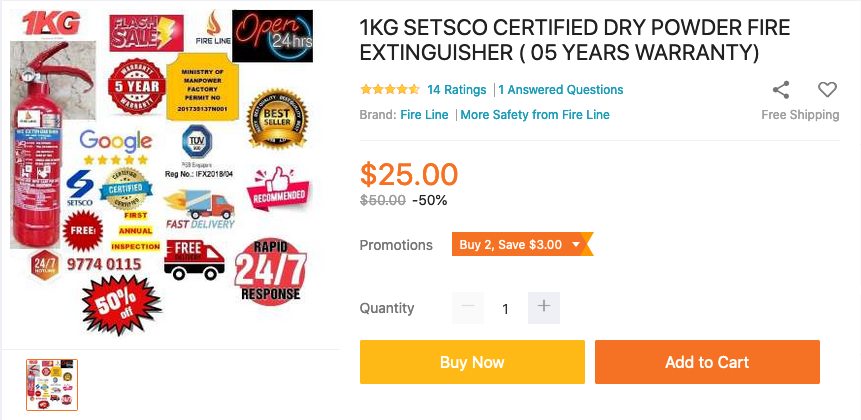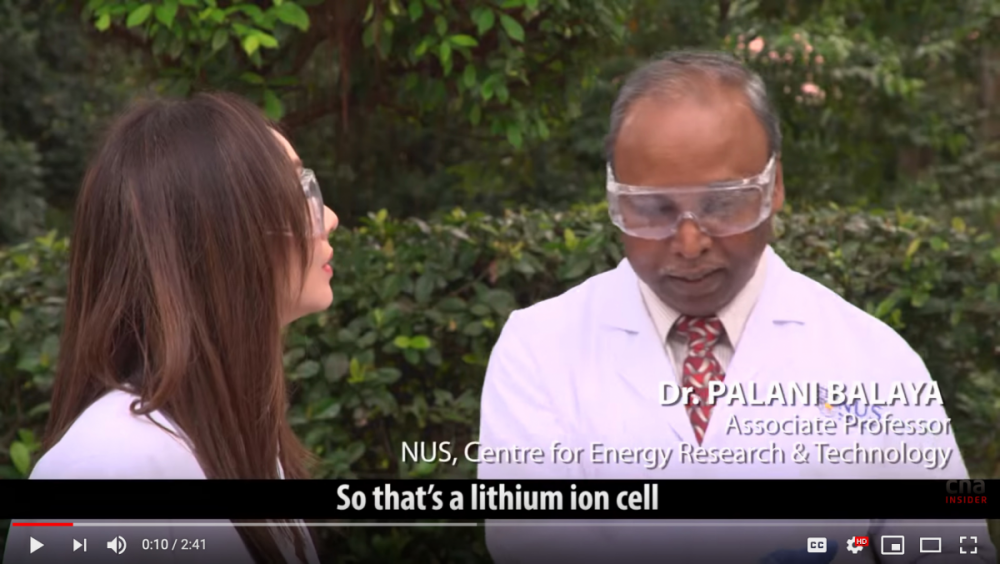Search the Community
Showing results for tags 'lithium-ion'.
-
So since this topic is here to stay, I think instead of debating who is right and wrong, I think we should be prepared if there is something bad happening around us. I used to be from the Navy so I have learned some basic fire-fighting knowledge. I never fight a real fire before, luckily. So all the stuff I mention is from my understanding and with the help from google. At least 34 cases of PMD-related fires this year. There have been at least 34 cases of fires involving personal mobility devices (PMDs) so far this year, with two incidents over the last two days. Read more at https://www.todayonline.com/singapore/least-34-cases-fire-involving-pmds-year It is believed that lithium-ion battery fires are some of the most difficult fires to suppress. You can see the video here. and for a small lithium-ion battery, it can already cause such big damage, imagine you have like 10kg worth of lithium-ion battery. How to extinguish a lithium-ion battery? To prevent me from "oversteer", let's dive straight to the topic. Despite their name, lithium-ion batteries used in consumer products do not contain any actual lithium metal. For lithium fires, only a CLASS D COPPER POWDER EXTINGUISHER is recommended. The minimum equipment required includes eye-protection, respirator, rubber gloves, etc. If other combustibles nearby catch fire as well as a result of the lithium fire, then we need to use appropriate extinguishing agents to douse the secondary fires. Needless to mention, it is important to address each type of fire with the appropriate extinguishing. So as you can see from the chart, Class D fire is to tackle combustible metal. It is very expensive to actually keep a class D fire extinguishers at home compared to the dry powder extinguishers. So is there any other way to put out class D fire? since Li-ion contains very little lithium metal that reacts with water. Water also cools the adjacent area and prevents the fire from spreading. Research laboratories and factories also use water to extinguish Li-ion battery fires. But I think this part is subjective. If there is smoke from the lithium-ion battery or there is an initial flame, I think water will be useful if it has already ignited, I don't think it will help. @carbon82 can help me with this. haha. Should I get one Class D fire extinguishers? Some of you might not have bought a fire extinguisher before. A normal dry powder ABC extinguisher is about $25 at lazada. So who will want to buy $620 dollar of extinguisher and stand by? If our government can invest 7 million on the return scheme of PMD, I think they should consider having extinguisher mounted at all HDB staircase or something. And I think it is good that maybe whoever is buying and registering a PMD, they need to go through a 1-hour fire fighting session or something. If they carry the risk, they must minimize the risk too. make the buying process a bit more troublesome, so those young punk will find it a hassle to own one. That's my thoughts. I never win TOTM before thou. 🤣🤣🤣
- 36 replies
-
- 4
-

-
- pmd
- lithium-ion
-
(and 3 more)
Tagged with:
-
A documentary video from CNA Insider showing us about the explosive facts of overcharging a bargain-price lithium-ion battery. This applies to mobile phone and other batteries that are lithium-ion. But PMD' owners, please take note. You guys have higher risk involved. Due to the sheer size of the batteries. So you must be wondering, how dangerous it can be right? CNA Insider has gotten a professor from NUS, Dr Palani Balaya to demonstrate how overcharging lithium-ion batteries can be dangerous. So here's a lithium-ion cell This cell should take 3 volts to charge. Let's ramp it up to 5 volts! ⚡️ Okay. Something is growing. . . For those who are watching the video, fret not. No need to move back from your screen. Do you notice the smoke? More smoke. And it goes. . . Kabooz!!!! Oh my goodness!@#$%!@#$ So imagine this is multiplied to the size of a scooter. To avoid all these mishaps, please look out for battery certification. For the full video, please watch from here. PMD Users Can Get Rid Of Non-Certified Devices Under LTA Scheme, Early Birds Get $100 Incentive
- 25 replies
-
- 6
-

-
- pmd
- lithium-ion
-
(and 3 more)
Tagged with:
-
General Motors is trying to ease buyers concerns about battery life by announcing it will guarantee the upcoming Chevrolet Volt's lithium-ion battery pack for 100,000 miles or a period of eight-years, whichever comes first. In addition, GM noted that the warranty will be transferable at no cost to a new owner should a Volt buyer decide to sell his car. According to the Detroit automaker, "it's the automotive industry's longest, most comprehensive battery warranty for an electric vehicle". The Volt's battery warranty covers all 161 battery components and that's a pretty comprehensive thing for buyers as the cost of the 400 pound battery has been estimated to be between US$8,000 to US$10,000. The car uses a small gasoline engine to produce electricity once the battery is depleted. Perhaps the Honda CRZ and Toyota Prius should follow Chevrolet
-
- general motors
- volt
-
(and 3 more)
Tagged with:






